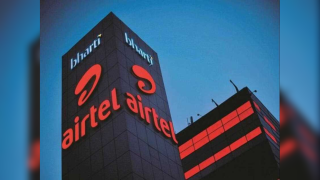When faced with the prospect of living under lockdown, people around the world soon got creative. Within days, virtual pubs and virtual museum tours were completely normal, and virtualisation itself — which was little more than a tech trend a year earlier — was a central pillar of daily life.
At Colt Technology Services the idea took on a new meaning when the pandemic forced the brakes on the annual Colt Charity Bike Ride. Taking place for eight consecutive years, it has raised €1.32 million for charities around the world.
In full planning mode for the 2020 event when Europe was plunged into lockdown, there was no alternative than to take the latest edition virtual.
“This year’s challenge was our way to say we are working together. We might be remote, but we can still do the things that achieve a common goal,” says VP for inclusion and diversity, Louisa Gregory.
From motivating her fellow ‘Colties’ to helping charities plug emerging funding gaps, for Gregory the 2020 challenge took on new meaning.
“We recognise that charities are doing it really tough this year, so we were really conscious that these charities that we have supported over a number of years need that funding. Often the work they do is needed more than ever, given people are impacted by Covid in many ways,” she says.
In a normal year, 130 riders and 40 support crew embark on a multi-city bike ride that covers 500-700km between Colt office locations.
This year, the challenge was for everybody to help cover the entire 100,000km network in any event they saw fit, even shopping — the caveat being that event can’t be virtualised. From 9-22 September progress was tracked on a map running from in the UK to the US, Asia, Australia and Europe.
“It actually exceeded my expectations,” says Gregory, a triathlete who covered 224km running, swimming and cycling. The team hit its fundraising target for the year, raising €150,000, but there was more to the challenge than charity.
“People really got behind it. They were sharing lots of stories and photos and we did some videos along the way,” she adds, sharing that many Colties have since been inspired to make regular exercise a habit after the challenge.
“That’s the impact you can have even doing relatively small things. It happened over two weeks, but it makes an impact on somebody’s life,” she adds.
2021 and beyond
Although much of life remains on hold for now Colt isn’t standing still, instead welcoming 2021 with a strategy designed to challenge the status quo. From exploring the essence of innovation and partnership, to motivating a workforce that has been decentralised for almost a year, as Gregory says: “There are lots of things in the pipeline”.
CEO Keri Gilder, who took the reins only weeks into the pandemic, has implemented 10 work streams tackling, among other things, where people work. A million-dollar question for all businesses at this time, Gregory says: “One of the big things we are thinking about is leading a remote workforce in the future. Keri has taken the view that we will never force anybody to be in an office and that is absolutely the right approach.”
Other focus areas cover internal processes, bringing AI, automation and other technology into play for operational efficiency.
“Then there are other ones around innovation. What is the new tech that we need to implement to support our customers? 5G is obviously a hot topic and the impact that is going to have, everywhere, not just in the UK,” Gregory says.
These aren’t the only forces reshaping the industry at present. A wave of consolidation is changing how verticals are defined as well as how they interact with each other. For Colt, this means another major focus area will be how and why it forms partnerships in an ecosystem where nobody is considered a competitor and value is there to be maximised.
“For example, a lot of the OTTs are moving into this space. They are becoming cloud providers, offering voice services, they’re encroaching in on the telecoms space.
“So rather than viewing them as a threat we can partner with them and recognise they don’t have the skills when it comes to telecoms infrastructure, they don’t have the skills when it comes to managing regulatory environments in this space, and yet they do have the reach and the capital and those sorts of things, beyond what Colt has,” Gregory explains.
The final piece, of course, is inclusion and diversity. A personal calling as well as a professional priority, Gregory is hopeful for what the recent uptick in activity means for progress in the long-term.
“We are seeing a significantly more focused discussion on what it means to be an inclusive and diverse company, not just at Colt but across many others. The GLF is running a whole working group and companies everywhere are more cognisant of the need to be more inclusive and bring people along for the journey and make sure they don’t get left behind,” she says, concluding: “I do believe that will continue into 2021.”





